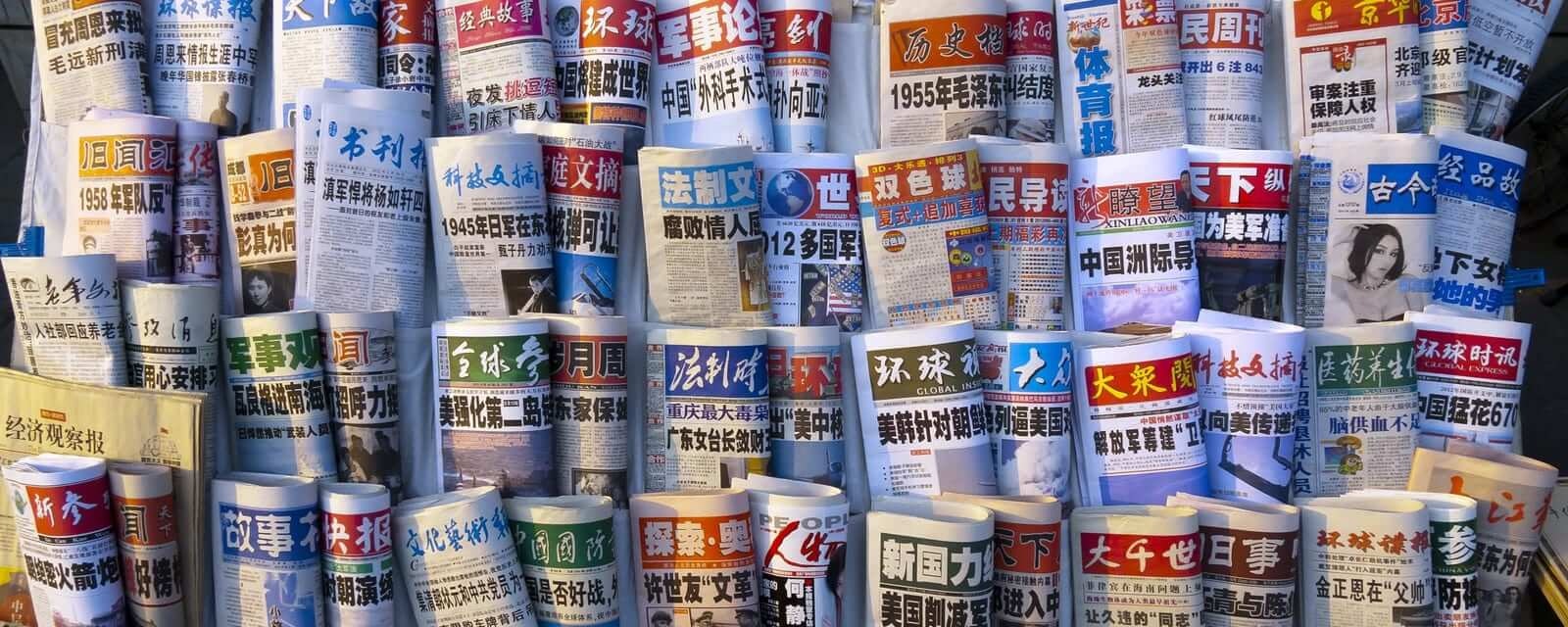Revealing the true situation of COVID-19 has been less a health issue and more a PR challenge for Brand China as its official communication and media relations have been put to the test. On January 20, when the Chinese government effectively went public with its concern about the extent of the virus and the following two weeks when provinces across the country were forced to reveal their actual number of cases or face consequences, the world watched as the number of cases rose rapidly. While this new virus was not well-understood, the Western media were quick to draw comparisons with the China of 2003 when SARS affected the country.
However, during the past seventeen years, China has risen onto the world stage and is now a leader in global trade perhaps best illustrated by its signing of the much-anticipated Phase 1 Trade Deal with the U.S. just a few days before the “COVID-19 Announcement” press conference. Knowing how the world had viewed its response to SARS, China wanted to handle COVID-19 on its own terms, and ideally handle it as a domestic issue. Engaging with the World Health Organization (WHO) was already a big step for China. However, as the WHO deliberated regarding whether the virus presented sufficient danger to be termed a “Public Health Emergency of International Concern” (PHEIC), an epidemic or a pandemic, the media saw new cases appearing around the world and started to share their own conclusions.
China no Longer Tacitly Accepts Criticism
Despite now being a global leader, China does not like to be criticized in the foreign media and is highly sensitive about its image. It has become increasingly responsive by both joining the media debate through its own channels, international media platforms and in other actions towards journalists in order to explain its actions regarding the virus. Chinese diplomats and China’s Foreign Ministry’s Hua Chunying have launched Twitter accounts, and more visibly coordinated content has been seen on the Chinese media Twitter and Facebook accounts (these platforms are blocked in China and therefore the target audience is primarily overseas).
During the past two months, China has demonstrated that it will not tolerate any criticism of its handling of COVID-19. Domestically it is proud of its efforts and state media have been used to show leadership that is committed to the welfare of the nation including daily images of leaders wearing masks, inspecting the frontlines and directing work. This is also the image it wishes to portray to the rest of the world. Therefore, in February 2020, it was not a surprise when China revoked the press passes of three WSJ journalists following an article entitled “China is the Real Sick Man of Asia.” None of the expelled journalists were involved in the writing of the article but this was irrelevant. Chinese Foreign Ministry spokesperson Geng Shuang explained “The Chinese people do not welcome media that use racially discriminatory languages and maliciously slander and attack China.”
The U.S. responded ten days later by announcing a ‘personnel cap’ of a total of 100 staff for China’s five state-sponsored media based in the country including Xinhua, CGTN, China Daily, People’s Daily and China Radio. On the same day, China’s Foreign Correspondents Club released a report regarding increasing restrictions on visas and reporting. Mid-March, the situation continued to escalate when Beijing told 13 U.S. journalists from three major U.S. publications including The New York Times, The Washington Post and The Wall Street Journal to hand in their press cards within 10 days which effectively means they cannot do reporting. Citing “unreasonable oppression” of Chinese journalists in the U.S. as the reason, this unprecedented escalation looks set to continue as China demonstrates its new-found confidence. “We urge the U.S. to take off its ideological prejudice, abandon cold war mentality,” Geng Shuang said. “China is not one to start trouble, but it will not blink if trouble comes. We urge the U.S. side to immediately stop suppressing Chinese media, otherwise the U.S. side will lose even more.”
Conclusion: The Challenge for Foreign Corporations in China
This media war is not simply a power war between two governments. It will affect the reporting of corporations by journalists based in both countries and to audiences beyond. Some international media based in China have been blocked to domestic audiences for a long time. This includes the BBC, Reuters, The New York Times and The Washington Post, to name a few, as well as social media platforms such as Facebook, Twitter and YouTube.
However, since China is an increasingly key market for many global corporations, reporting on corporate activities from within the country has become a key part of international media strategies. The effect of these expulsions will have a tangible impact including:
- Fewer foreign journalists will be interested in investing their careers in China
- Fewer foreign journalists will be based in China, therefore limiting the capacity of media to do in-depth coverage of corporate stories, including U.S.-listed companies
- Fewer positive corporate news features, including China potential growth stories that have boosted market confidence among U.S.-based investors
- Some news outlets may grow more cautious about publishing stories critical of China, especially from journalists based in-country, but some may also grow more critical of China — and of foreign companies that appear to be seeking positive relations with the Chinese government — resulting in more negative coverage
- Chinese media based in the U.S. may become more critical of corporations and less willing to give neutral coverage
Given these factors, corporations engaging with China are advised to consider the value of sustained communication and a long-term approach to media relations taking time to build relationships. Messaging must be equally thoughtful and should consider sensitivities among both global and local audiences.




